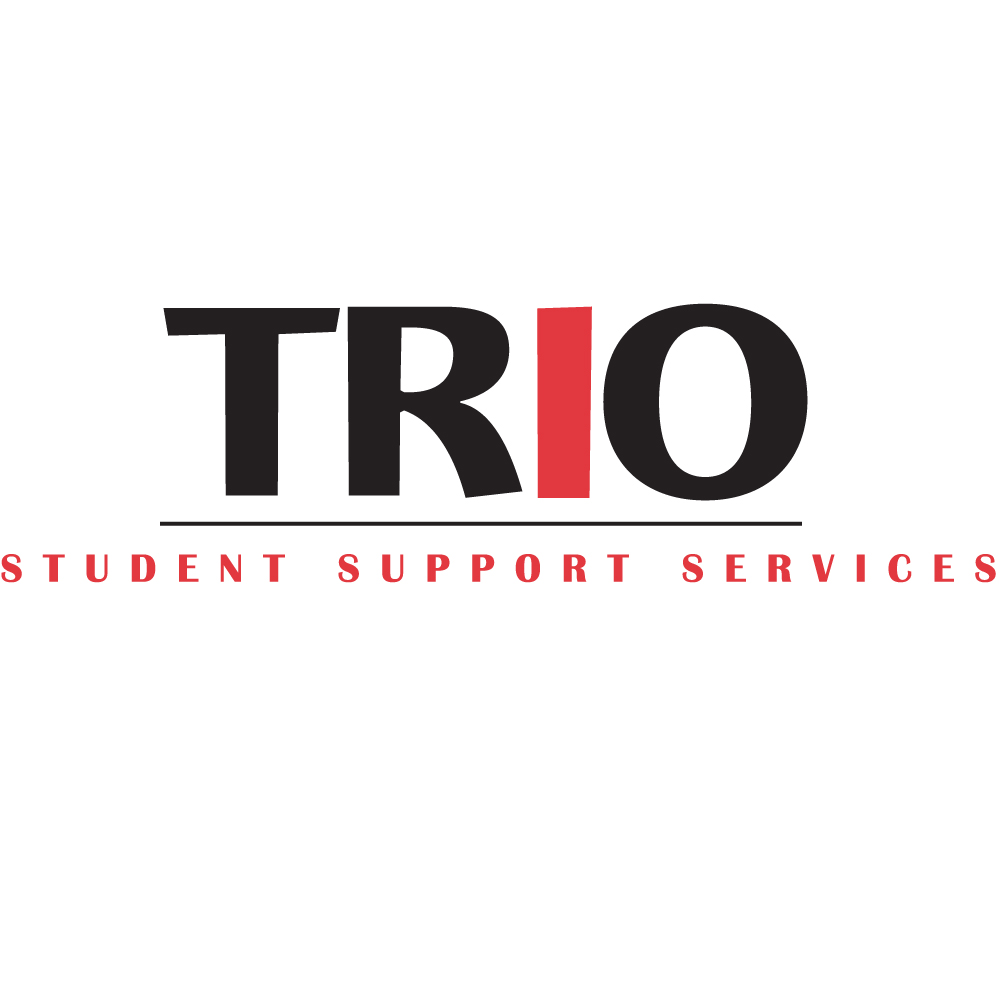
This blog focuses on my scholarship in my five research projects: learning assistance and equity programs, student peer study group programs, learning technologies, Universal Design for Learning, and history simulations. And occasional observations about life.
Best Education Practice: Assessment Tools for Equal Opportunity Center TRIO Programs
 Post Assessment Evaluation Tool for EOC Programs. Wichita State University (KS) (approved Promising Practice 9/25/13) Taken from the abstract: "There is a perennial need to develop assessment tools for TRIO program services in general and Educational Opportunity Centers (COE) program services in particular. The post-service assessment tool for an EOC program is designed to help EOC staff and administrators to use a generic tool and collect relevant evaluation data to assess and seek improvement in the quality of services. The goals of this practice is: 1) to develop a generic quantitative survey based tool to assess service efficacy; 2) to measure the self-reported learning outcomes of the EOC services; 3) to assess the efficacy of the EOC staff in providing these services." [Click on this web link to download the education practice.]
Post Assessment Evaluation Tool for EOC Programs. Wichita State University (KS) (approved Promising Practice 9/25/13) Taken from the abstract: "There is a perennial need to develop assessment tools for TRIO program services in general and Educational Opportunity Centers (COE) program services in particular. The post-service assessment tool for an EOC program is designed to help EOC staff and administrators to use a generic tool and collect relevant evaluation data to assess and seek improvement in the quality of services. The goals of this practice is: 1) to develop a generic quantitative survey based tool to assess service efficacy; 2) to measure the self-reported learning outcomes of the EOC services; 3) to assess the efficacy of the EOC staff in providing these services." [Click on this web link to download the education practice.]
Best Education Practice: Academic Advising Management System
 Academic Advising Management System, Wichita State University (KS). (approved Promising Practice 10/11/13). From the abstract: "One service that the Wichita State University (WSU) Upward Bound Math Science (UBMS) Program provides in support of its mission is academic advising.A key practice with the WSU approach is the data collection and management of information essential for effective advising of the students. This information includes students’ progress towards completion of their required curriculum and enrollment pattern in math and science courses. It is also used for strategic planning purposes by the UBMS program personnel for whom the information helps inform study group formation, tutoring needs and summer course design. While Upward Bound programs commonly provide academic advising services to its students, the WSU approach is more comprehensive and includes additional stakeholders. [Click on this link to download the education practice.]
Academic Advising Management System, Wichita State University (KS). (approved Promising Practice 10/11/13). From the abstract: "One service that the Wichita State University (WSU) Upward Bound Math Science (UBMS) Program provides in support of its mission is academic advising.A key practice with the WSU approach is the data collection and management of information essential for effective advising of the students. This information includes students’ progress towards completion of their required curriculum and enrollment pattern in math and science courses. It is also used for strategic planning purposes by the UBMS program personnel for whom the information helps inform study group formation, tutoring needs and summer course design. While Upward Bound programs commonly provide academic advising services to its students, the WSU approach is more comprehensive and includes additional stakeholders. [Click on this link to download the education practice.]
Best Education Practice: Podcasting Academic and Career Counseling for Post 9/11 Veterans
 Podcasting Academic and Career Counseling for Post 9/11 Veterans. Wichita State Unviersity (KS) (approved Promising Practice 10/15/13) Adding audio podcasting to the Upward Bound Veterans program allows our students to listen to important information when and where they want. Podcasting is a simple way to provide information through the human voice some students prefer rather than reading a handout. Listening to audio and video podcasts has rapidly grown recently due to widespread ownership of iPods, smartphones, and desk/laptop computers. Podcasting can be as simple or complex as you want. The most important element is the quality of information and its direct relevancy to the listeners. [Click on this web link to download the education practice.]
Podcasting Academic and Career Counseling for Post 9/11 Veterans. Wichita State Unviersity (KS) (approved Promising Practice 10/15/13) Adding audio podcasting to the Upward Bound Veterans program allows our students to listen to important information when and where they want. Podcasting is a simple way to provide information through the human voice some students prefer rather than reading a handout. Listening to audio and video podcasts has rapidly grown recently due to widespread ownership of iPods, smartphones, and desk/laptop computers. Podcasting can be as simple or complex as you want. The most important element is the quality of information and its direct relevancy to the listeners. [Click on this web link to download the education practice.]
CHANGING EQUATIONS: How Community Colleges Are Re-thinking College Readiness in Math
 Complete Report available to download, http://www.learningworksca.org/wp-content/uploads/2013/10/LWBrief_ChangingEquations_WEB.pdf
Complete Report available to download, http://www.learningworksca.org/wp-content/uploads/2013/10/LWBrief_ChangingEquations_WEB.pdf
From the Executive Summary: Because of their high enrollment and generally low completion rates, community colleges have been identified as central to efforts to improve higher education outcomes. But that improvement won’t be realized unless more students succeed in math. Together, the high proportion of community college students requiring math remediation, and the relatively low proportion who succeed in required remedial sequences, make placement in developmental math one of the single greatest barriers to college completion. Only 20 percent of students who place into remedial (also known as developmental) math courses ultimately complete the remedial sequence and pass a college-level math course - such as college algebra or statistics - that is required to graduate or transfer.
An increasing number of colleges in California and nationally are involved in experiments aimed at improving, reforming, or even eliminating math remediation in community colleges. This includes a new movement to construct alternative pathways for the majority of community college students, those whose educational goals may not require a second year of algebra. Through LearningWorks’ efforts to strengthen student achievement in the California Community Colleges, it has become clear that practitioners involved in such experiments are eager to learn about parallel efforts, and those not yet involved are curious about the work underway, whether in California or elsewhere in the nation.
LearningWorks commissioned this report, Changing Equations, to address those needs. Critics argue that intermediate algebra unnecessarily hinders some students pursuing degrees in fields such as English, history, art, and political science from ever graduating. The new pathways for non-STEM (science, technology, engineering and math) students are course sequences including both remedial-level courses as well as credit-bearing gatekeeper math courses. Many of these new sequences stress skills in statistics or quantitative reasoning, which proponents say serve most students better in their lives and careers than does high-level algebra. While the de-emphasis on intermediate algebra remains controversial, the math pathways movement resonates with other initiatives to focus community college students’ education around structured pathways leading toward careers.
These experiments are informed by findings emerging from both research and practice that are starting to shift the understanding of math readiness. At the heart of that evolution are four key insights:
- Math is a hurdle for the majority of community college students. Roughly 60 percent of community college students are placed in developmental math courses.
- Most students deemed “unready” in math will never graduate. Only 20 percent of students who place into developmental math complete a required gatekeeper course in math.
- The tests used to determine readiness are not terribly accurate. Research has estimated that as many as a fifth of students placed into remedial math courses could have earned a B or better in a college-level course without first taking the remedial class.
- The math sequence required by most colleges is irrelevant for many students’ career aspirations. According to research, about 70 percent or more of people with bachelor’s degrees do not require intermediate algebra in their careers.
Collaborating TRIO Student Support Services and Other College Support Programs
 Hanover Research (2013) provides an overview of campus organizational models that are conducive to a holistic approach to success for all students. Then they present in depth profiles of five institutional approaches to collaboration between and/or integration of federally-funded TRIO Student Support Services with institutionally-funded tutoring, academic advising, and First Year Experience programming.[Click this link to download a copy of the report].
Hanover Research (2013) provides an overview of campus organizational models that are conducive to a holistic approach to success for all students. Then they present in depth profiles of five institutional approaches to collaboration between and/or integration of federally-funded TRIO Student Support Services with institutionally-funded tutoring, academic advising, and First Year Experience programming.[Click this link to download a copy of the report].
We Connect Now, Website for Issues Related to College Students with Disabilities
 Our Mission – We Connect Now is dedicated to uniting people interested in rights and issues affecting people with disabilities, with particular emphasis on college students and access to higher education and employment issues. [Click on this web link to access the We Connect Now web site.]
Our Mission – We Connect Now is dedicated to uniting people interested in rights and issues affecting people with disabilities, with particular emphasis on college students and access to higher education and employment issues. [Click on this web link to access the We Connect Now web site.]
One of the goals of this site is to help college students with disabilities to succeed in their studies by getting the information and support they need, both through resources, links, blogs latest news, studying existing laws and regulation and through personal contacts. Through this website people can also share and read other people’s stories as a source of support and comfort. We also want people using our webpage to take action by writing blogs, hosting an event or becoming involved in politics by knowing about upcoming legislation. Also, every month our webpage will focus on a particular disability or condition to bring our visitors more information and support related to our focus of the month. Through our jobs section, we also hope to help empower people with disabilities find employment through job posting and job searching tips, and if people have any questions we encourage them to contact us. The goal of this site is that people leave it having gained knowledge, a support system and having taken action. We were founded in 2008.
